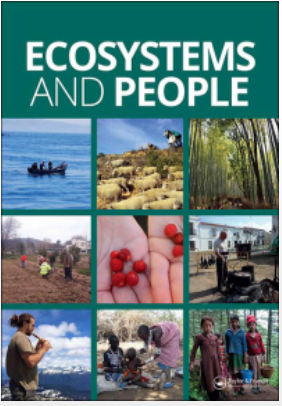肩负重担:新西兰奥特亚罗瓦湿地生态系统管理中的社会生态尺度失调问题
IF 3.7
Q1 Agricultural and Biological Sciences
引用次数: 0
摘要
摘要 规模上的社会-生态错配限制了生态系统从环境退化中恢复,严重影响了依赖生态系统的不同群体。识别不同文化群体之间的尺度错配可以深入了解影响自然生态系统管理、恢复和使用的潜在社会和结构性不平等。它还可以提供补救错配和不公平的途径。在此,我们调查了与新西兰奥特亚罗瓦湿地生态系统相关的四个行为群体(tangata tiaki(毛利人环境监护人)、私人土地所有者、皇家(即国家)机构和休闲猎鸟者)所报告的社会生态尺度错配的性质。我们还试图揭示错配所带来的负担和利益的性质,以及据报道这些负担和利益是否为所有群体所共享。据报告,以西方为基础的治理(如针对单个农场规模而非集水区规模的湿地管理政策)所带来的空间、时间和功能概念上的规模错配损害了社会、文化和环境福祉的各个方面(如通过减少代理)。据报告,注重短期经济收益而非长期湿地生态系统健康等不匹配现象尤其妨碍了土著人民对自然生态系统的权利和责任。公平的伙伴关系和嵌套治理是生物文化框架内的机制,可支持土著人民的自决。通过拥抱价值多元化和编织不同的知识体系来促进文化多样性,可以改善土著和其他行为群体的社会生态成果。通过公平管理和使用资源来实现社会公正,可以促进社会生态福祉,从而造福于人类和自然界的其他要素。本文章由计算机程序翻译,如有差异,请以英文原文为准。
Shouldering the burden: social-ecological scale mismatches in wetland ecosystem management in Aotearoa New Zealand
ABSTRACT Social-ecological mismatches in scale limit the recovery of ecosystems from environmental degradation, severely impacting the diverse groups who rely on them. Identifying scale mismatches across cultural groups provides insights into underlying social and structural inequities affecting the management, recovery, and use of natural ecosystems. It can also present pathways to remediate mismatches and inequities. Here, we investigated the nature of social-ecological scale mismatches reported by four actor groups (tangata tiaki (Māori environmental guardians), private landowners, Crown (i.e. State) agencies, and recreational gamebird hunters) associated with wetland ecosystems in Aotearoa New Zealand. We also sought to uncover the nature of burdens and benefits brought about by mismatches and whether these were reportedly shared by all groups. Spatial, temporal, and functional-conceptual scale mismatches enabled by Western-based governance (e.g. policies geared towards individual farm-scale rather than catchment-scale wetland management) were reported to undermine aspects of social, cultural, and environmental wellbeing (e.g. through reduced agency). Mismatches such as focus on short-term economic gain over long-term wetland ecosystem health were reported to hamper particularly Indigenous peoples’ rights and responsibilities towards natural ecosystems. Equitable partnerships and nested governance are mechanisms within biocultural frameworks that can support self-determination by Indigenous peoples. Fostering cultural diversity by embracing value plurality and weaving diverse knowledge systems can improve social-ecological outcomes for both Indigenous and other actor groups. Social justice through equitable management and use of resources can then cascade to promote social-ecological wellbeing, thus benefitting both humans and other elements of nature.
求助全文
通过发布文献求助,成功后即可免费获取论文全文。
去求助
来源期刊

Ecosystems and People
Agricultural and Biological Sciences-Ecology, Evolution, Behavior and Systematics
CiteScore
7.80
自引率
11.30%
发文量
40
审稿时长
42 weeks
期刊介绍:
Ecosystems and People is an interdisciplinary journal that addresses how biodiversity and ecosystems underpin human quality of life, and how societal activities and preferences drive changes in ecosystems. Research published in Ecosystems and People addresses human-nature relationships and social-ecological systems in a broad sense. This embraces research on biodiversity, ecosystem services, their contributions to quality of life, implications for equity and justice, and the diverse and rich ways in which people relate to nature.
 求助内容:
求助内容: 应助结果提醒方式:
应助结果提醒方式:


